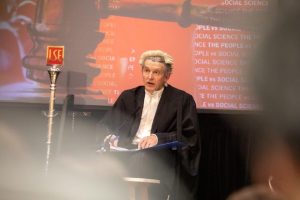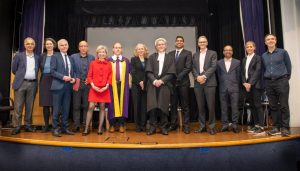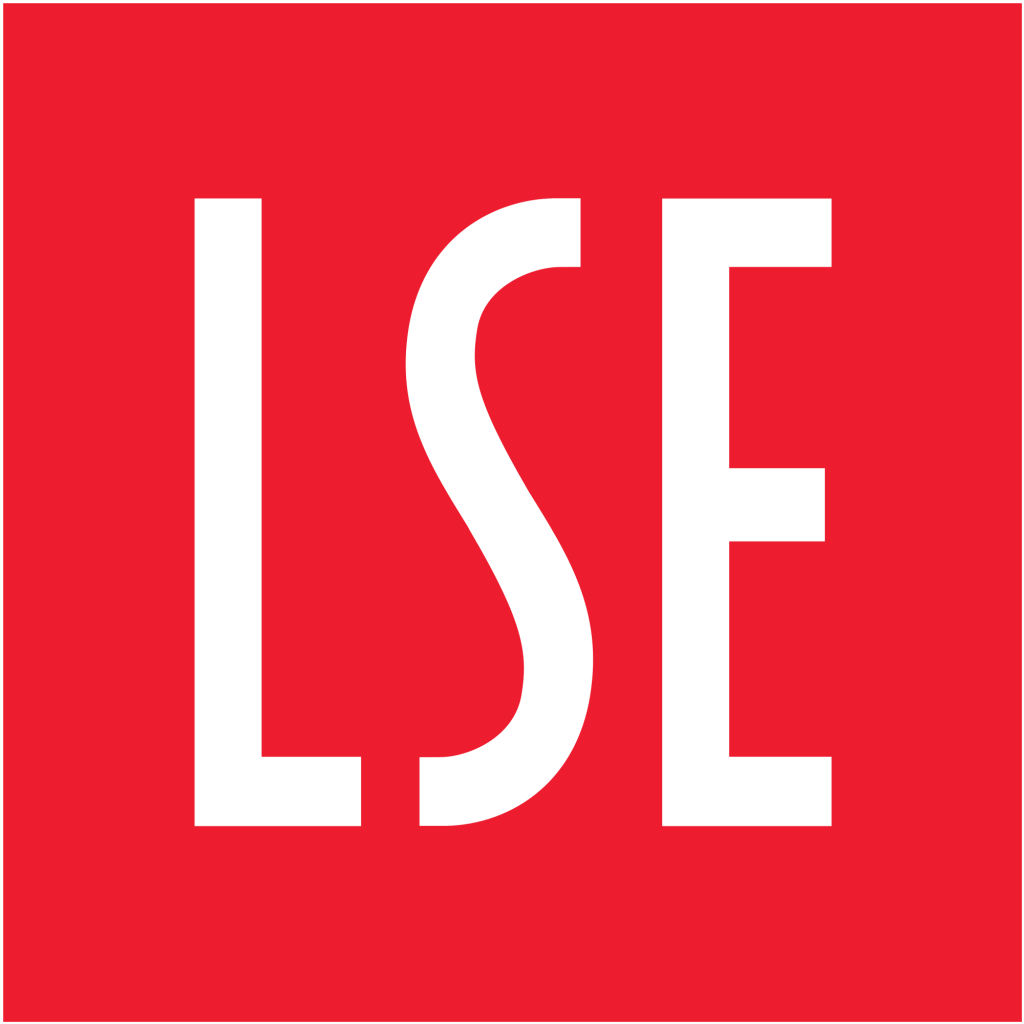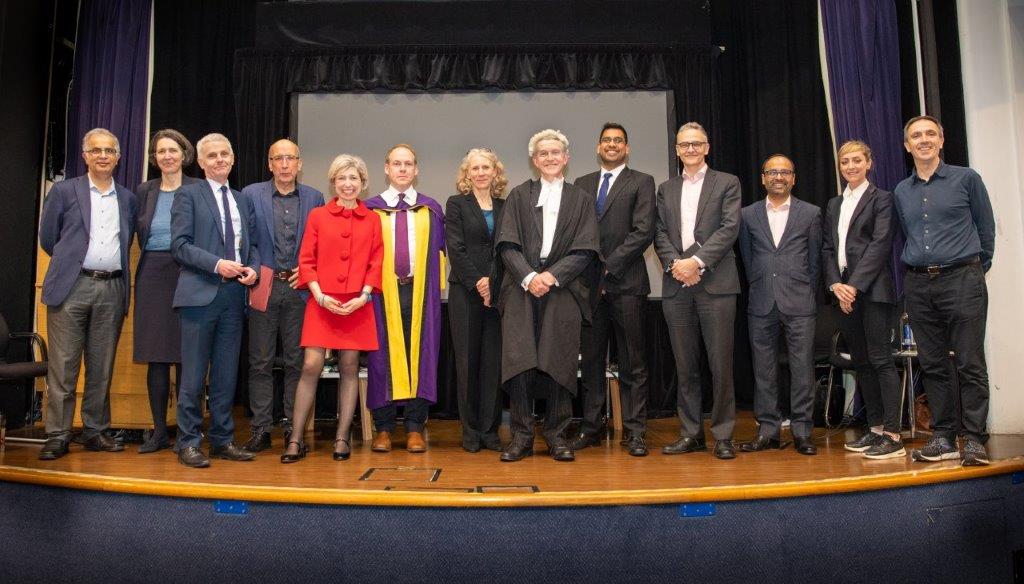A Memoir
I think, looking back, that the highlight of my judicial career came early, not long after I had been appointed to the High Court bench but before my promotion to the Court of Appeal. It was just on the verge of the onset of the great cultural freeze that marked the start of what we now call the Covid-19 era (or ‘the 19’ as many simply refer to it). On 10 March 2020 we had over 300 present, bunched together, sharing the pleasure of the trial with friends and colleagues alike. Ah what happy, innocent days! When to be alive was, to paraphrase the poet, bliss and to meet more than one person the very heaven.
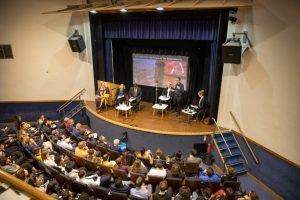
I digress: solitude turns even a mind as separated from feeling as my own in on itself. The hearing was one of the first at which an idea was put on trial before a jury made up of an audience of all those both physically present and watching the event remotely. Of course the format has since become a staple of populist entertainment during the 19, but the living audience present at our event gave it a tangible sense of energy and purpose, a dramatic power that added greatly to the enjoyment of all.

Now it is a matter of public record that the format was subject to some criticism on appeal (albeit the verdict – more on this later – was left undisturbed), but I still think my clerk and I and our team had devised the best possible way of getting the arguments for and against social sciences before our large jury. Readers will of course recall that each side had its own legal team, the prosecution of social sciences led by Mr Paul Kirby supported by junior counsel Rachel Middlemass, with the defence team composed of Professor Julia Black and Dr Muthukrishna.
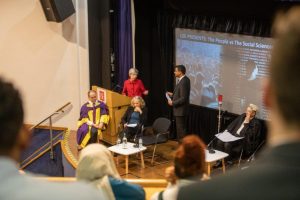
Each side had three witnesses to present their case, with each cross-examined by the other side to expose weaknesses in their argument. The prosecution paraded Professor Bandiera, Professor Travers and in a surprise late development Dr David Halpern who has left academia and runs the ‘nudge unit’ at the centre of government, no 10 Downing Street (whose purpose I recall misunderstanding at trial – such are the risks attendant on not reading daily news as of course we judges do not). On the other side, the social sciences were defended by Professor Richard Blundell (UCL), Mr Hetan Shah from the British Academy and Dr Rachel Glennerster. As a judge I have long believed in brevity as a route to truth and my savage time limitation of ten minutes on each witness (for both examination-in-chief and cross-examination) was on the whole cheerfully accepted.

The evening produced so many highlights, and not only because, as fate would have it, it was to be the last of my trials before the onset of the 19: Professor Bandiera attempting to explain that the only thing wrong with wonderful social sciences research was that it did not communicate its findings well enough; Dr Halpern magnificent in his assertiveness while being verbally assaulted by Dr Muthukrishna whose spontaneous flowering as an advocate of aggressive distinction was one of the most dramatic moments of the whole occasion; Professor Blundell unstoppable in his final impassioned peroration on behalf of the Institute of Fiscal Studies of which he is such a vital part; Professor Travers dependably laconic and devastating in his knowledge despite giving the impression that he had wandered on stage by accident having taken a wrong turning after class; Hetan Shah imploring us to take social sciences seriously as he starts work running a key social sciences institute; Dr Glennerster passionately asking us to look at how important research in this arena is to international development. Of course none of it would have been possible without the labours and the eloquence of counsel, not only Muthukrishna but the authoritative Black, the eloquent Middlemass and the Periclean Kirby as well (master of the abusive peroration). I caught sight on occasion too of the busy student-lawyers who had done so much to make the work of counsel so impressive.
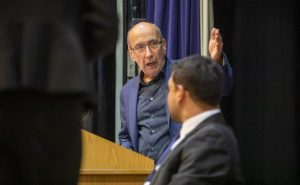
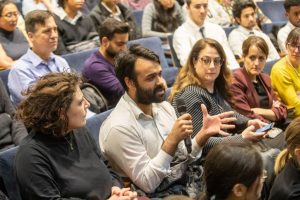
I had my clerk find out who they were afterwards: Laure Barbe, Chong Bu, Valentinia Canepa, Cora Drozd, Deepali Masirkar, Luciné Mehrabyan, Victoria Suarez-Rubio and Khurshid Zafari: I salute you all – you made your bosses appear better than they were, the role of trainee lawyers the world over.
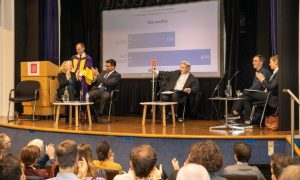

It would be churlish of me at this juncture not to acknowledge as well the excellence of my Clerk Mr Sullivan: ours was not an easy clerking relationship – I remember a particularly difficult trial before this one and I own to having a short temper – but as (now, finally and perhaps deservedly) senior clerk he did a first class job. So too did the jury-managers, the wonderful Lubala Chibwe and Molly Rhead, and the many ushers on the night. Though I often think otherwise, my trials are never only about me.
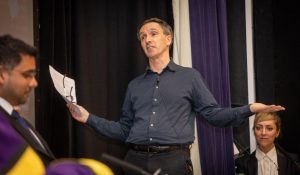
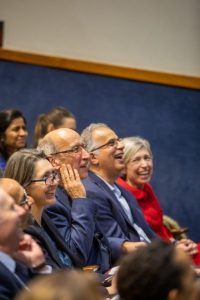
And what of the result? The jury found social sciences not guilty of having failed society by a substantial margin, I think (though memory must serve; the records were lost in the great 19 isolation) by about two-thirds to one-third. This was despite my having lightened the burden of proof from ‘beyond reasonable doubt’ to ‘on the balance of probabilities’. (The appellate court’s stinging criticism of this decision by me was, in my opinion, quite unwarranted.) That may be, another digression from a solitary man winding down his life, but as now back as promised to the outcome: it was surely both right and wrong. Right because where would we be without the ability to put ourselves in context, to take ourselves away from both beauty and the past (the humanities) and the soulless microscope (the physical sciences) and instead to turn the gaze in on ourselves as living social animals? Wrong because in our effort to do this we do not apply our own social critique to ourselves to see how the constitution of our world – our social construction of it – tempts us always into obscurity, irrelevance and the worship of the false Gods of the past, people with foreign names and unreadable supposed accounts of the way things are. Somehow we muddle through, like the supply chain in those golden pre-19 days, understanding the causes of things ‘just in time’.
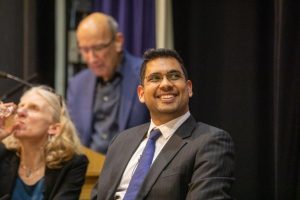
Conor Gearty is a professor at LSE and a Barrister. He is not a judge though he continues to hope against hope…..
